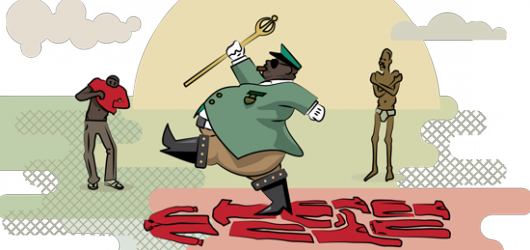NAIROBI (HAN) May 11.2016. Public Diplomacy & Regional Security News.By: Anton du Plessis ‘Corruption is not just one of the problems in Africa, it is the biggest problem in Africa’.
This is the key message that Anton du Plessis, Executive Director of the Institute for Security Studies (ISS) is taking to the 26thWorld Economic Forum (WEF) on Africa conference which starts today in Kigali, Rwanda.
From 11-13 May, regional and global leaders from business, government and civil society will meet to discuss digital economic drivers that can strengthen public-private collaboration to help solve key challenges across Africa.
Tackling bad governance on the continent is difficult because the two main stakeholders at the centre of the problem – government and big business – are also the ones who need to find solutions. Corrupt relationships in many public-private partnerships have existed for decades and are entrenched in the way they work.
As part of its new strategy, the ISS is engaging with the business sector and investors to inform their decisions. Forums such as the WEF conference provide an opportunity to shape global and continental debates and policies on key security challenges.
ISS is engaging with the business sector and investors to inform their decisions TWEET THIS
‘For Africa to meet its growth, stability and development goals, there needs to be a frank discussion about how to end corruption’, says du Plessis. ‘Corruption is not a social ill, it’s not a way of life, it’s not how you do business – it threatens the livelihoods of millions and drives conflict, fragility and terrorism’. The WEF Global Agenda Council on Fragility, Violence and Conflict, reinforces this argument in a new report onResponsible Investment in Fragile Contexts.
As a WEF Young Global Leader and a member of the WEF Global Agenda Council on Fragility, Violence and Conflict, du Plessis believes that a new social compact between government and business in Africa will require young dynamic leaders. These will be leaders who use technology and who understand the demands of the youth. Du Plessis will lead a discussion on creating this new public-private partnership during a session on rebuilding trust and integrity in business.
Several of the continent’s leaders recognise that Africa’s narrative is changing fast and that its future is dependent on its youth. The ability to benefit from technology and attract foreign direct investment depends on Africa getting its house in order on corruption. But this process must be part of the global anti-corruption movement in order for things to change.
In this regard, delegates at the WEF’s Africa conference would do well to monitor the outcomes of the landmark international anti-corruption summit taking place in London today. Hosted by British Prime Minister David Cameron, the summit will bring together world leaders, business and civil society to develop practical steps to expose corruption, punish perpetrators and drive out the culture of corruption.
Du Plessis’ participation in the WEF conference is funded the Dangote Fellowship, which funds all African Young Global Leaders.
For more information, contact:
Anton du Plessis, ISS: +27 787813619, aduplessis@issafrica.org
Picture © World Economic Forum 2016


Leave a Reply